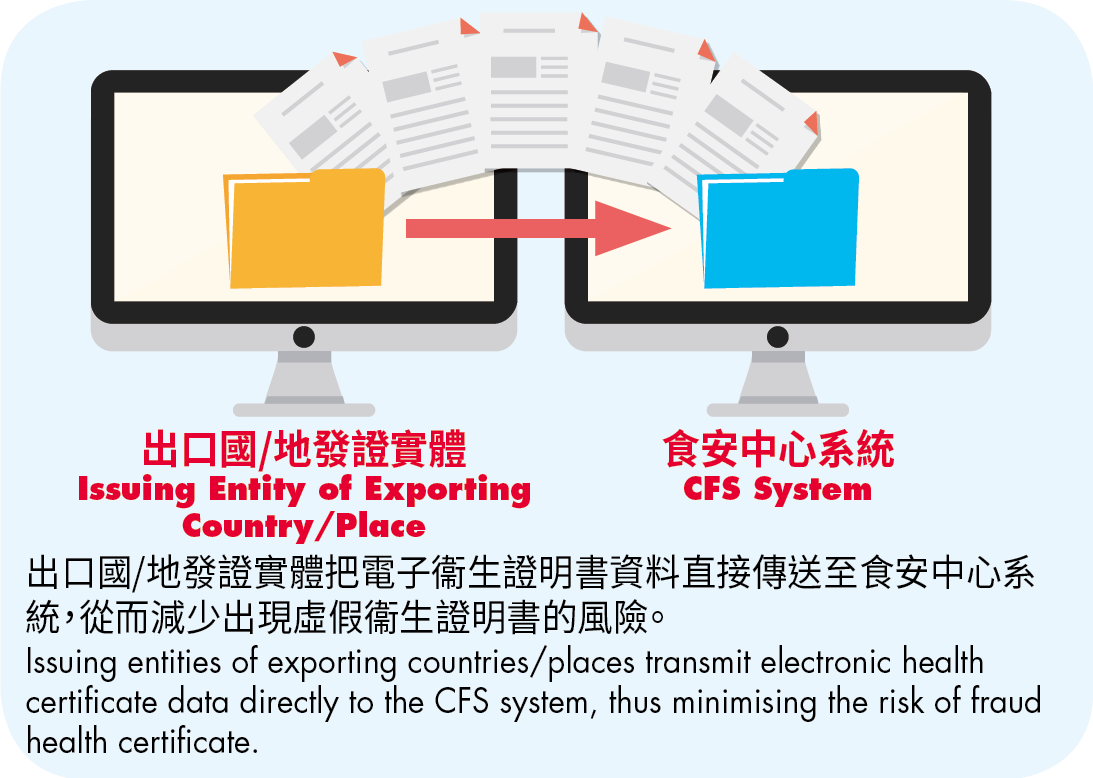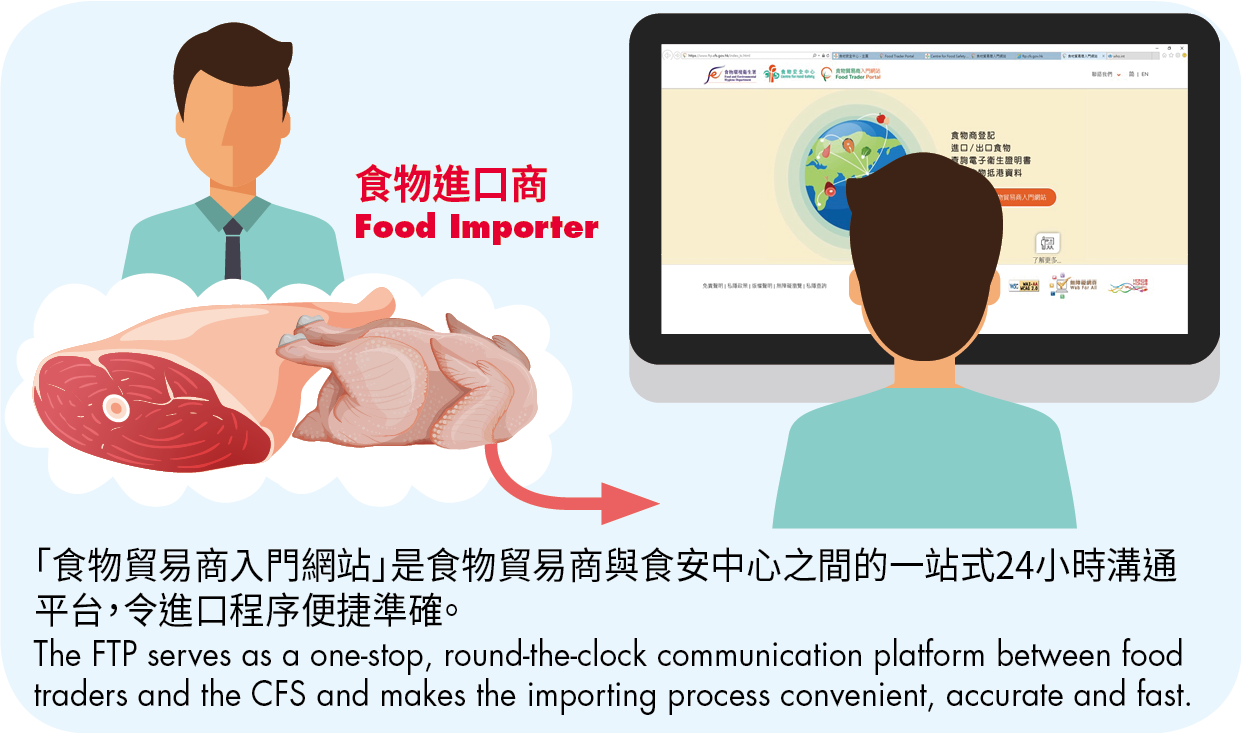
Food Safety Focus (162nd Issue, January 2020) – Incident in Focus
Strengthening Food Safety Control by Electronic Health Certification and Enhanced IT System-Food Trader Portal
Reported by Mr. Lai Chi TSE, Manager (Special Duties), and Mr. Edmond NG,
Superintendent (Corporate and System Management), Centre for Food Safety
Background
In November 2019, the Centre for Food Safety (CFS) found some discrepancies in the serial numbers of a few health certificates for exported meat issued by the Vietnamese authorities and immediately informed the Consulate General of Vietnam in Hong Kong for verification. After investigation, the Vietnamese authorities identified eight forged health certificates.
Health certificate is a certificate issued by an issuing entity of the place of origin for a consignment of food, showing that it has been inspected and is safe for human consumption. In Hong Kong, the provision of health certificate is a legal requirement for import of certain high risk food such as game, meat, poultry and eggs.

Figure 1: The advantages of Electronic Health Certification
Addressing Forged Health Certificate
While the use of paper health certificate has all along been an effective means adopted by importing countries in ensuring the safety of imported food, the above incident reminds us that there are potential loopholes. To improve the situation, food safety authorities worldwide advocate the use of electronic health certification.
Electronic Health Certification Enhances Security
Electronic health certification is the authenticated, trustable and secure electronic transmission of health certification data from the competent authority of the exporting country to its counterpart of the importing country. The requirements for electronic health certificate are the same as those for paper certificate, which are laid down in the guidelines promulgated by Codex, the international food safety authority. Attested information including unique identification number; with designs to minimise the risk of fraud; and details of the product being certified should be clearly documented on the electronic health certificate. Electronic health certificate has clear advantage over the paper one from security point of view as it allows instant online verification by third parties and is very difficult to forge.

Figure 2: The advantages of the Food Trader Portal.
Establishment of Electronic Certification with Other Authorities
The CFS has established e-health certificate system with three overseas countries, including New Zealand and Australia since 2011 and the Netherlands since 2017. In addition, we have recently signed a co-operation agreement with the Mainland authority on government-to-government electronic health certificate data exchange in the 1st quarter of 2020 tentatively. The CFS will keep exploring with other countries/places on the development of electronic certification.
Food Trader Portal
In parallel, enhancement of the information technology (IT) system will also help strengthen food safety control along with the use of e-health certificate. The CFS has launched the Food Trader Portal (FTP), a new IT system that facilitates the business operations of food traders, in last December. In brief, the FTP serves as a one-stop electronic communication platform between food traders and the CFS, with key online functions including trader registration, food import applications and enquiry on food import related information on a round-the-clock basis.
The CFS will by phases introduce in the FTP a number of trade facilitating measures, including the use of optimised formats and application forms for import licence and import permission. Food traders will then be able to make use of the free online services anytime without having to send their staff to submit application forms in person at the CFS. They can receive and download the import licence and import permission in the FTP. The time required for managing paper documents will be saved. Meanwhile, the CFS will shorten the processing time for certain types of import licence application, e.g. from a full working day to 4 hours.
The FTP also provides another simple and convenient way to apply for an import licence through using electronic health certification: by selecting the appropriate health certificate in the FTP, an importer may complete a licence application with just a few clicks on an electronic device. As the electronic data are transmitted directly from the issuing entities, data security and accuracy are guaranteed. Besides, the FTP will conduct some preliminary checking on the application information and alert the importer if abnormality is detected, for example, when a health certificate number duplicated with a preceding application case has been input.
In preparation for the rollout of the FTP, the CFS has organised training sessions to provide hands-on experience of using the FTP for food traders. A series of promotional and tutorial videos on how to use the FTP have been produced and uploaded to the FTP website (http://www.ftp.cfs.gov.hk). With the deployment of the FTP, food traders will be able to enjoy the convenient and fast online services without any restrictions on time and place. In the meantime, the capacity of the CFS for collection and management of imported food data will be further enhanced systematically, thereby strengthening its work on food safety control to safeguard the public's health.
Key Points to Note
- Electronic certification enhances authenticity and integrity, thus minimising the risk of fraud health certificate.
- The CFS has launched the FTP, a new IT system that facilitates the business operations of food traders including submission of online applications to the CFS.
- Food traders are encouraged to open user accounts early to enjoy the convenient and fast services offered at the FTP.

